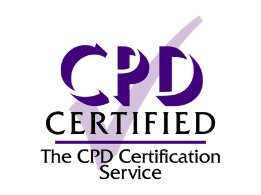Mentorship is a powerful tool for personal and professional growth, and its importance in leadership development cannot be overstated. Developing future leaders through mentorship is essential as the business landscape becomes increasingly complex.
Here, we will explore the significance of mentorship in leadership development and provide practical tips for both leadership mentors and mentees to maximise the benefits of this relationship.
The Importance of Mentorship in Leadership Development
Enhancing Skills and Knowledge
Mentorship plays a crucial role in enhancing the skills and knowledge of emerging leaders. Experienced mentors share their expertise and insights, giving mentees a deeper understanding of leadership principles and practices.
This knowledge transfer helps mentees develop critical skills for effective leadership, such as strategic thinking, problem-solving, and decision-making.
Building Confidence
Confidence is a vital trait for leaders, and mentors play a significant role in building this up.
Mentors help mentees overcome self-doubt and develop self-esteem through encouragement and support. By sharing their experiences and challenges, mentors demonstrate that setbacks are part of the leadership journey, boosting the mentee’s confidence in facing similar challenges.
Any good leader knows, “Business success isn’t about never facing setbacks; it’s about showing resilience and perseverance in the face of challenges.”
Networking Opportunities
Mentorship in leadership development also provides valuable networking opportunities. Mentors can introduce mentees to their professional networks, helping them build relationships with industry leaders and peers.
These connections can open doors to new opportunities, resources, and collaborations crucial for leadership development.
Personal Growth and Development
Beyond professional skills, mentorship fosters personal growth and development.
Mentors often emphasise the importance of self-awareness, emotional intelligence, and work-life balance. By addressing these aspects, mentors help mentees become well-rounded individuals better prepared to lead with empathy and integrity.
How to Be a Good Mentor
Be Committed
Commitment is fundamental to a successful mentoring relationship. Mentors must dedicate time and effort to consistently supporting their mentees. This includes scheduling regular meetings, being available for discussions, and following up on the mentee’s progress.
Listen Actively
Active listening is vital to understanding the mentee’s needs and goals. Mentors should practice attentive listening, ask insightful questions, and provide thoughtful feedback. This helps build a strong, trusting relationship in which the mentee feels heard and valued.
Provide Constructive Feedback
Constructive feedback is essential for growth. Mentors should offer honest yet encouraging feedback, focusing on areas of improvement while acknowledging the mentee’s strengths. Providing specific examples and actionable suggestions can help mentees apply the feedback effectively.
Be a Role Model
Mentors serve as role models through their actions and behaviour. By demonstrating integrity, professionalism, and ethical leadership, mentors set a positive example for mentees to follow. By embodying these qualities, mentors inspire mentees to adopt similar values in their leadership journey.
Encourage Independence
While guidance is essential, mentors should encourage mentees to make decisions and take ownership of their development. This balance of support and independence helps mentees build confidence in their abilities and develop a sense of accountability.
How to Be a Good Mentee
Be Open and Receptive
Mentees must be open to feedback and willing to learn. Cultivating a growth mindset and being receptive to new ideas and perspectives allows mentees to gain the most from their mentoring relationship.
Set Clear Goals
Clear goals provide direction and purpose. Mentees should set specific, achievable goals for what they want to accomplish through mentorship. Communicating these goals effectively helps mentors tailor their guidance to meet the mentee’s needs.
Take Initiative
Proactivity is key to maximising the benefits of mentorship in leadership development. Mentees should actively seek advice, resources, and opportunities for growth. By identifying areas for improvement and taking steps to address them, mentees demonstrate their commitment to their development.
Show Appreciation
Expressing gratitude is essential in any relationship. Mentees should recognise and appreciate their mentor’s time and effort. Simple gestures like thank-you notes or public acknowledgements can go a long way in showing appreciation.
Apply Learnings
Finally, mentees must apply the knowledge and advice from mentorship in practical situations. Reflecting on outcomes and learning from experiences ensures continuous growth and development.
Conclusion
Mentorship in leadership development is invaluable. It provides emerging leaders with the skills, confidence, and personal growth needed to succeed. By fostering strong mentor-mentee relationships, organisations can cultivate a new generation of leaders equipped to navigate the challenges of the modern business world.
Whether you are seeking a mentor or looking to become one, mentorship has profound and far-reaching benefits.
Contact our team today for those looking to deepen their understanding of mentorship and leadership development or learn more about leadership development here.








